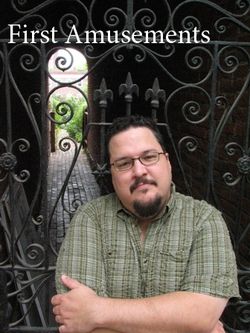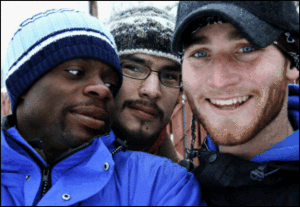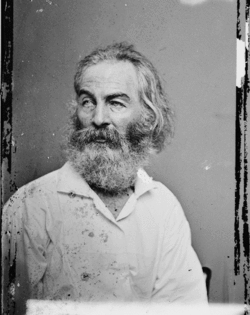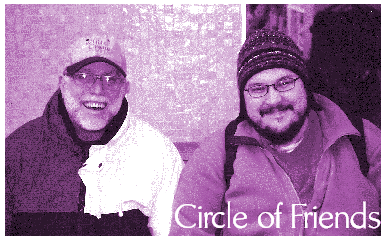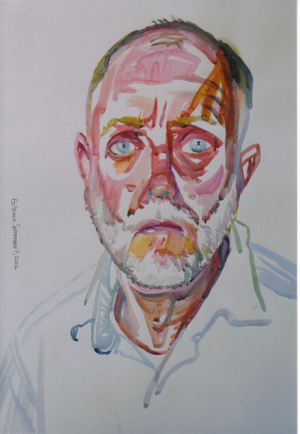It’s hard not to take a defensive crouch when writing an introductory essay to a special issue on poetry and music. Truth be told, the defensiveness has more to do with the poetry than the music. Music everyone loves and understands. Poetry? That is a more contentious idea. Or seems to be.
I feel compelled to make the case for poetry, to argue for the importance of poetry and the desire for others to read more poetry. Arguments of this kind usually include a mention of the endangered nature of poetry, how no one reads it anymore and how it’s tied to the decay in society. I somewhat agree with all these things, but those kinds of essays always take on the feel of a commercial for high-fiber cereal “You should eat it because its good for you damnit!”
The truth is I’ve always found these kinds of arguments a bit boring and beside the point. Poetry is in our lives and has been there since the beginning. Think of it. For most of us our first real exposure to poetry occurs in childhood with rhymes and little stories.
Jack be nimble, jack be quick…
Jack Sprat could eat no fat… (Jack was a busy boy.)
Eeny, meeny, miny, moe…
They’re the indelible songs we first learned
Mary had a little lamb…
Twinkle twinkle little star…
These poems are the first stories that stuck because they embedded themselves in the brain. But somewhere down the line — and it almost always happened (or happens) in a classroom — the pleasurable experience of enjoying this art form of wordplay is replaced with a mechanical exercise in pulling the little wonder apart, in dissecting the corpse of what was so alive in the ear. For most people I’ve spoken with, these approaches had the result of causing them to run for the exits.
For the last 7 years I’ve run a small reading series in my neighborhood. Most of our work in building an audience has been rehabilitating poetry in the ears and minds of the people who come forth; healing the bad memory of poetry as an aloof inaccessible thing or a laborious exercise for the listener. Our readings are a bit different as we choose a theme and then collect poems from the contemporary and legacy poets we know. So if you came to our reading on “dog poetry” (every June) you would hear 45 of the best poems on dogs written in the English language (some translated into English). So it’s more like an anthology. I mention this not as a plug for a local series but to share that we rarely have the opportunity to hear, much less read good poetry. With the exception of The New Yorker, it is rare to find a poem in a magazine today. Much rarer Gay poetry. I can’t tell you the last time that The Advocate published a poem in its pages.
This was not always this way. Not long ago it was unheard of to publish a magazine without having a poetry editor and publishing a few poems in magazines. [White Crane has long had a poetry editor. Bo Young, the publisher in these parts, began his connection to the magazine as it’s poetry editor. I served as poetry editor for RFD before coming to White Crane.] Theories abound as to the why and when this changed but that’s not really the point here. The point is that there is great poetry being written today but fewer places to read it and fewer places to enjoy the best.
We care about poetry here. For no other reason than poetry is Gay. Yes, I wrote it. Poetry is so Gay. It’s impossible to know the history of the art form and deny that it bears a huge resonance for Gay people and that Gay people have mastered it in powerful ways. Do I need to make the list? Okay then: Whitman, Dickinson, Lowell, Cavafy, Stein, Bynner, Lorca, Lorde, Bishop, Auden, Jordan, Ginsberg, Hughes. All Gay. The list is too long to write here and I haven’t even touched the contemporary poets.
So no defensiveness then. We publish poetry because Gay people write poetry. Damn good poetry too. Which brings us to the damn good poetry in this issue (see how these things flow?).
We’re delighted in this issue to publish the poetry of James Nawrocki, the first winner of the White Crane/James White Poetry Prize for Gay Men’s Poetry. Nawrocki hails from San Francisco, and we here at White Crane are proud of the fact that his work has previously appeared in these pages. The prize itself was judged this year by the powerfully good poet Mark Doty, who has honored us all by looking through the work of the finalists and selecting Nawrocki’s manuscript for publication. We are also proud to publish some poems by the two other finalists Jeremy Halinen of Seattle and James Najarian of Boston.
In striving to honor the muses of Poetry and Music, we have a fantastic interview with the Pulitzer-prize winning composer David Del Tredici and an essay by Arthur Evans on the creative universe.
So enjoy! And I hope you are amused.
Amused. That’s the word the poet Frank O’Hara used when he came across something that really moved him. Something that “touched his muse.” If he loved something, he found it “amusing.” If he was not impressed or moved, he found it “unamusing.” It’s perhaps one of my favorite phrases and I share it with you.
Be amused. Be very amused.
Dan Vera is the White Crane's managing editor. He is also the author of the recently released book of poetry, The Space Between Our Danger and Delight (Beothuk Books). He lives in Washington DC. For more on Dan visit www.danvera.com
For more White Crane, become a fan on Facebook and join us on Yahoogroups.
Subscribe today and keep the conversation going! Consider giving a gift subscription to
your friends who could use some wisdom! If there's an article listed
above that was not excerpted online, copies of this issue are available
for purchase. Contact us at editors@gaywisdom.org
